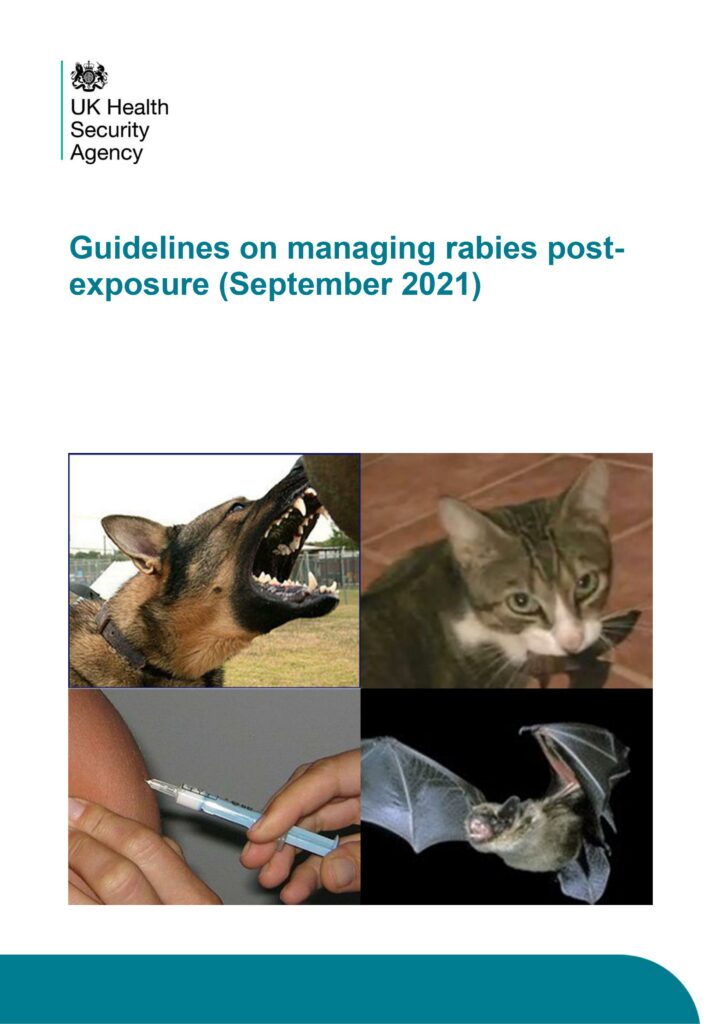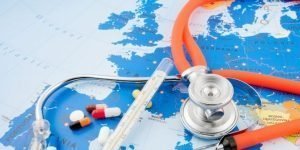
Those of you who have done a Travel Health course delivered by me will probably have heard me recount the story about my 2006 South Africa trip when I’m discussing how to approach the question of ‘what vaccines do I need?’.
I tell the story because it is a very fitting example for:
Many people still think that there is simply one standard list of vaccines for each country that EVERYONE needs to get (or NOT get) in order to go there. But it’s just not as easy as this is it? There are, of course, lists showing which vaccine preventable diseases are present, or are potential risks in that country, beautifully presented on the wonderful NaTHNaC and TRAVAX databases. But, these risks have to be carefully interpreted and discussed with travellers, along with the preventative options and advice for what to do if a traveller chooses NOT to have the vaccinations. And that’s what I am going to talk about today.
Here’s me in South Africa, looking very much more youthful than today (not a nurse at this point, let alone a travel health nurse).

24 year old female, normally works as a HCA, medically fine. Two weeks in South Africa, Limpopo province. Doing some ‘volunteering’ with the locals.
Using Travel Health Pro, which diseases would you mention?
And I asked the standard question; “What vaccines do I need?”. She looked at her screen and said “ahhh yes here’s what you need”, gave me a hepatitis A vaccine, and advised me to buy some malaria tablets. I asked if I would need anything else and she said “oh no, it’s only a short trip, just be careful with your food and drink and have fun!”. She sent me on my merry way to South Africa feeling invincible (as travellers often do after a ‘jab’ and some meds).
I felt I had done my bit for my health as I packed up my rolls of 35mm camera film and Walkman while pondering what ‘careful’ actually meant with regards to food and drink. Ah maybe it meant take some Imodium…
Now, you can probably tell from the photo that the type of ‘volunteering’ I was doing was working with monkeys. The nurse didn’t actually ask me what kind of volunteering I was doing, and likewise, I didn’t offer this information not thinking it was particularly relevant. I just wanted to know which ‘South Africa’ based jabs would protect my entire-being from everything on the trip like a lot of people do. I didn’t really think there was more to it than just knowing the country. Like many lay people, I just imagined a magic list somewhere with ‘South Africa’ at the top and a list of vaccines with no discernible categorisation based on these odd things called ‘risk factors’.
Yes, I was stupid and naive to not learn a bit more about protecting my health. I didn’t research it all properly, being swept away by the glossy STA brochure with pictures in like the one above of happy travellers covered in cute happy monkeys. I kind of thought: How dangerous can it be if there’s a brochure? And look at the monkeys they are so cuuuuute….
And this is my point. There are more like me out there.
I was just like some of the naïve first-time travellers that most of us inevitably encounter in our consults at some point; the ones who are only concerned with; ‘what vaccines do I need?’ and feel like the travel health part is ticked off once the achy arm sets in. (Enter: the person who comes in asking for ‘THE TRAVEL JAB’ or ‘THE DIARRHOEA JAB’).
Two weeks after I had returned back to the UK I got a letter from the organisation. The letter said this:
“We are writing to inform you that our puppy, Beni, has sadly died of rabies. If you came into contact with Beni at any point on the trip, please seek some treatment urgently. You could be infected with rabies which is fatal if untreated. Thanks for your stay with us, hope to see you again soon!“
Came into contact with him? I thought. He licked me on the eyeball! And I let his little sharp puppy teeth sink into my arm constantly while playing. I KISSED HIM ON THE MOUTH!!!! Loved that little (now dead) dude.
I then looked down at my still very visible puppy scratches. The panic set in.
It went something like this:
“Help”, I said. “I might die. I need rabies treatment do you do that?”
“Do you mean rabies vaccines?”, the receptionist said.
I said; “I don’t know, do I need vaccines?”
She said; “I don’t know, I’ll check for you”.
So, she went off to ask someone and came back saying; “‘no, we don’t do rabies vaccines here, and even if we did you won’t get an appointment now. You sound very last minute if you want them right now. Maybe try the pharmacy?”
I did what any other not-very-sensible-but-average person would do and called my friend (Google still wasn’t really my go-to at this point in time but it was for her). She said; “oh don’t worry, it says here on Google that the vaccines are BEFORE you go and you have already gone and come back so there’s no point. You’re OK, it says here that you CAN die, but you’re NOT dead so you will be fine. Don’t worry, I was bitten LOADS by a kitten in Turkey and look at me, I’m fine”.
Relieved, and happy to settle with that prognosis, I carried on with my life for many years (whilst somehow not dying of rabies).
In 2011 after gaining RGN status and also surviving a stint in A and E, I developed a desire to enter the world of primary care and health promotion. It seemed more appealing than continuing to pick up the pieces from those (who behaved like me) appearing in the ED after various preventable things had gone wrong. So, I stalked a fabulous travel health company (Nomad) until they kindly gave me a job.
Have a go at this quick question and test your knowledge about what my likely post exposure treatment was:
For a start, a lot of health professionals tend to worry that they might end up giving a vaccine for a disease that is too ‘low risk’ to warrant the risk of the vaccine. But a vaccine being riskier than the disease it prevents is generally a rare scenario when it comes to inactivated vaccines such as rabies. So, there’s usually going to be adequate clinical justification for the vaccine if the disease exists at the destination.
Plus, reassuringly, I’ve never had someone come marching back into the clinic demanding their money back for their pre-exposure rabies vaccines because they were NOT bitten by a some kind of cute mammal they bonded with while away.
I think people are much more likely to be mad at us (or dead) in a situation where they WERE exposed and they hadn’t been advised that they had options to prevent bad stuff ensuing even if they were perceived as ‘low risk’ at the time. OR worse still, categorically told they ‘didn’t need’ the thing that could now actually be saving their bacon.
When people ask me ‘but do I REALLY need it?’ for a seemingly ‘lower risk’ trip, my response is often based around the seat belt analogy: You don’t ‘need’ to wear your seat belt. Well, not until you get in an accident: Then you would be glad you wore it.
Basically, you don’t technically ‘need’ ANY vaccines. Until you’re exposed to the disease. But it’s sadly often too late by then. So, after the seatbelt analogy, I go on to answer ‘what do I need’ with a more thorough explanation of the disease itself so the traveller can make up their own mind about the level of risk they are willing to accept. I often wonder how my initial pre-travel South Africa consultation would have gone differently if someone had explained the risks to me rather than just dismissing rabies on the back of one sentence about my trip?
Because of this experience, I always encourage the traveller to make the decisions themselves so they truly grasp the risks and don’t sit their passively just being told what to do or not do. So, I encourage them to picture themselves in a situation that is realistic to their trip and how it might feel to be vaccinated or not in that instance. I want them to get in the mindset of how I felt getting that letter. Of course, then there are mitigating factors such as budget and side effects, but who am I to say what people should spend their money on, or how much of an achy arm they are willing to put up with? I’m here to discuss their options and present factors for consideration.
I’d strongly urge anyone practicing travel health in whatever capacity to do a course, learn about the diseases you don’t provide in the same way you learn about those that you do vaccinate for. And if you don’t know a fair amount about rabies post-exposure treatment and why the pre-exposure vaccines are so beneficial please please please find out. I promise it will help you to answer that question of ‘what vaccines do I need?’.
Health Academy have developed a tool for you to use in your practice so that you never ‘need’ to feel pressured in to telling a traveller what they ‘need’. Even better, the tool is free and so is the short course on how to use it:
The Travel Vaccine Traffic Light Tool can be downloaded, printed, and laminated to use in travel health consultations to help you and your traveller.
Try this short quiz to test your knowledge of rabies
For an insight into the rabies treatment guidelines this is a fabulous resource to explore and is updated regularly:

Consider how your front-of-house teams handle post-exposure rabies requests. Are your team approaching this right?
Watch this fabulous video about rabies created by Health Academy using the ‘5T’s of tropical disease’ approach.
Why not try using the 5T’s approach in your consultations to help with concise explanations? For a quick free course on the technique go here.
Want to hear me explaining this story (and telling you all about rabies) in person? If so, why not sign up for one of the Introduction to Travel Health, or Travel Health update courses that I predominantly teach on (please don’t be disappointed if you don’t get me though, ALL the tutors have their own ‘being-irresponsible-abroad’ travel horror stories to share)



Giving you written and video content to answer all your questions on primary care education from Phlebotomy to Travel Health.
Subscribe now to be kept updated with our latest posts and insights.
Start typing to search courses, articles, videos, and more.